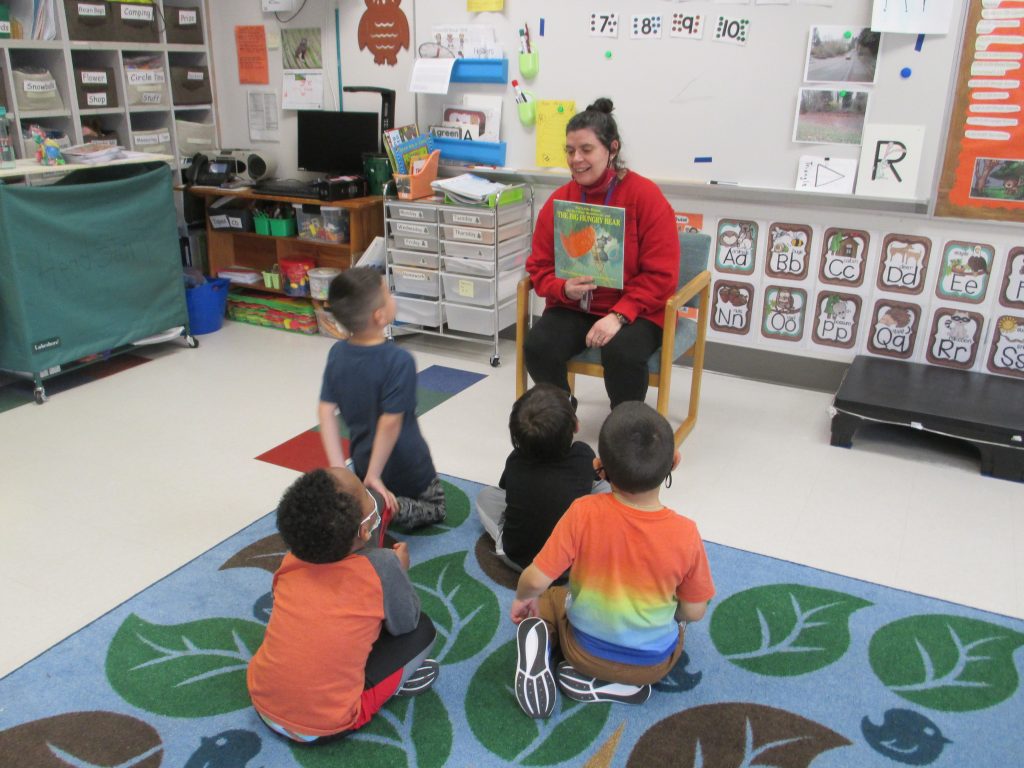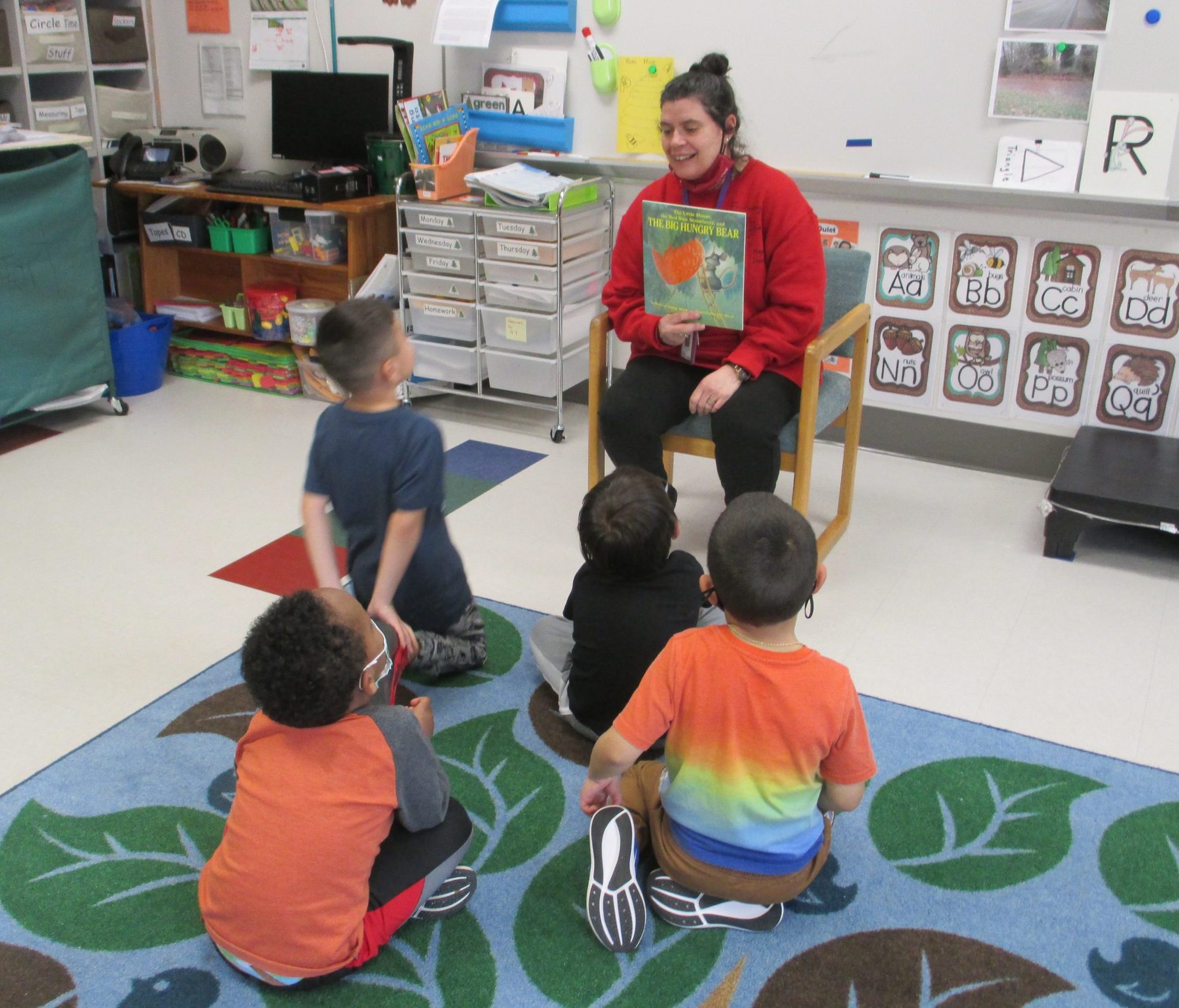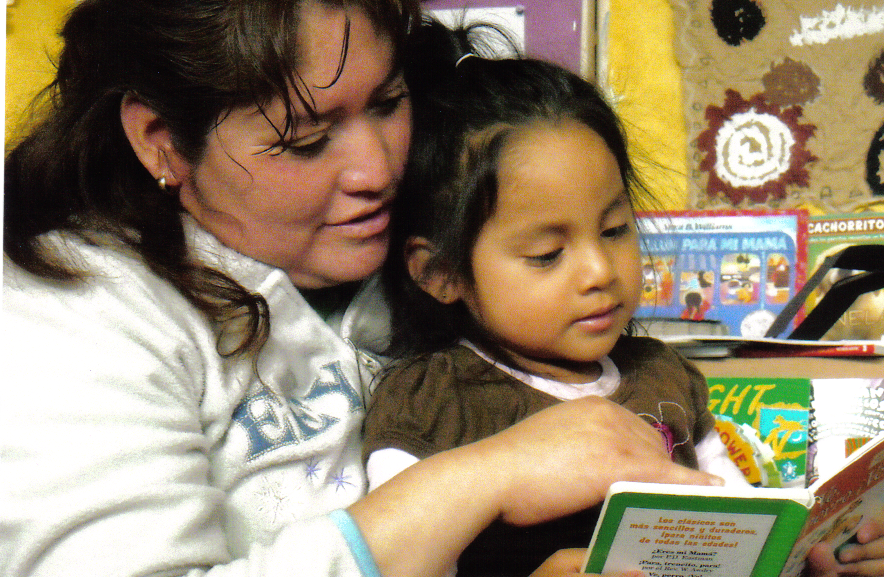Babies in families who receive government assistance are exposed to an average of 616 words per hour compared to an average of 2,153 words in families not receiving assistance. By the time children from economically disadvantaged families enter preschool, they are already behind their peers.
However, when preschool children listen to stories, the areas of their brains that support mental imagery and narrative comprehension—that is, understanding meaning—are activated.
Just a few weeks of dialogic, or hear-and-say, reading—involving a child in the reading process by asking questions that extend their understanding of the book—can help children jump ahead in their language development by several months.
Page Ahead’s Story Leaders program combines the impact of hear-and-say story times and the power of building home libraries to help children at government-supported preschool programs develop important preliteracy skills to get them ready for kindergarten and beyond.


A reading intervention that trains educators and families in evidence-based shared reading techniques for preschool children, Story Leaders rapidly develops vocabulary and language skills and provides eight free books that the students have read in class during the school year to take home, building both their home libraries and reinforcing the home–school connection.
Story Leaders is delivered in public Head Start and ECEAP (Early Childhood Education and Assistance Program) preschool classrooms where roughly 45 percent of the students are children of color and about one third speak a language other than English at home. It supplements existing curriculum and resources, helping to dismantle the literacy achievement gap that is too often experienced by children of color and children from under-resourced communities before that gap becomes irreversible. And it helps teachers, families, and children engage in meaningful, joyful reading together!


